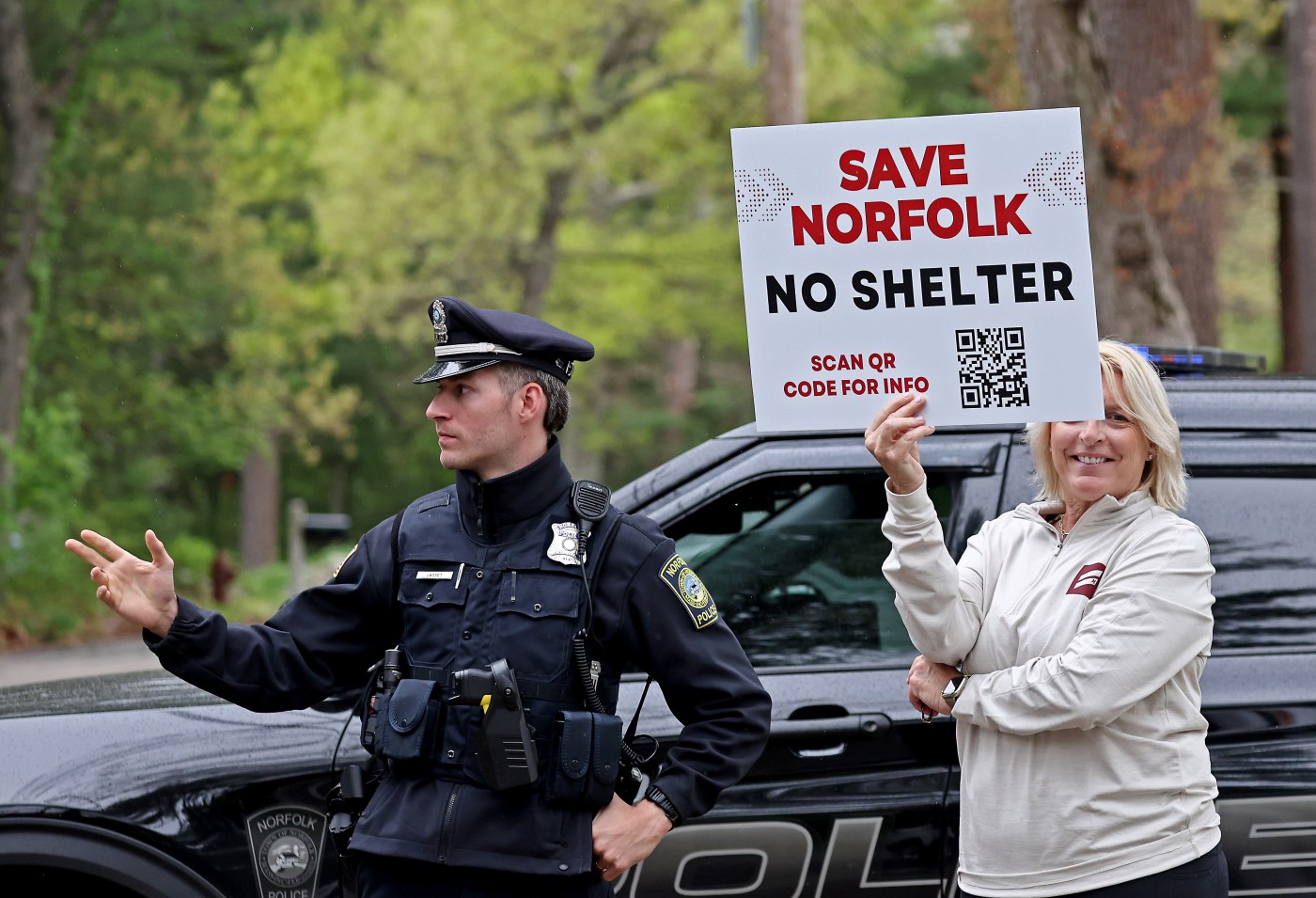
Editorial: It’s Healey’s way or the highway in Massachusetts
One of the perks of living in a democracy is the opportunity for citizens to have a say in the way they are governed. Residents of a city or town vote for local leaders and debate in Town Halls and meetings on how their slice of America will run.
Except in Massachusetts.
Here residents vote for their local leaders, debate local issues, and then are expected to roll over for whatever decision the Healey Administration has made for them.
Norfolk residents are the latest to be volun-told that their town is housing migrants.
As the Herald reported, the plan is for the former Bay State Correctional Facility to be used as a temporary overflow shelter for up to 140 families — a max capacity of 450 people — on the waitlist for the emergency shelter system.
Town selectmen said the state had only notified them of the plan days before. Residents aren’t happy, and hundreds showed up to testify in front of selectmen who held a forum before a regular Town Meeting.
Speakers noted that bids for contracts related to the project appeared to be already up, suggesting the planning was happening long before anyone in the town was made aware.
So the Healey administration made a decision affecting Norfolk constituents, without any input or rebuttal from Norfolk constituents.
There are practical concerns to address: the impact on the school system and special education services, longer wait times for emergency services and possible tax increases. All of this should have been addressed long before Norfolk was “selected” as a migrant shelter base.
But it wasn’t, just as it wasn’t addressed with Fort Point Channel residents in February, when they got word their neighborhood would be housing migrants as well.
“This is going to happen,” General Scott Rice, emergency assistance director for the Healey administration, said at a community meeting in response to a resident who asked whether the neighborhood had a say in the matter.
Democracy in action.
In Norfolk, board member James Lehan said they were planning a “comprehensive” list of demands to mitigate the issue and give it to the state.
We wish them luck. The town of Milton has learned what happens when you try to push back on a state mandate. Milton found itself designated as an MBTA Community, expected to welcome the construction of more than 2,400 housing units across a handful of neighborhoods across town.
The town held a vote, and 54% of roughly 9,500 ballots cast were against mandate compliance. The state didn’t blink, and informed Milton that it’s no longer eligible for a $140,800 grant award for seawall and access improvements at Milton Landing.
The MBTA Communities Act was signed into law by Gov. Charlie Baker in 2021.
We understand the dire need for affordable housing across Massachusetts and the impetus to find shelter for migrants and the homeless, but those needs shouldn’t override the rights of citizens to have a say in how their towns and cities function, how many children can be absorbed into their schools, and how local services will be impacted.
The Healey Administration should work with Massachusetts residents, not execute a series of end runs around them.
Editorial cartoon by Steve Kelley (Creators Syndicate)


